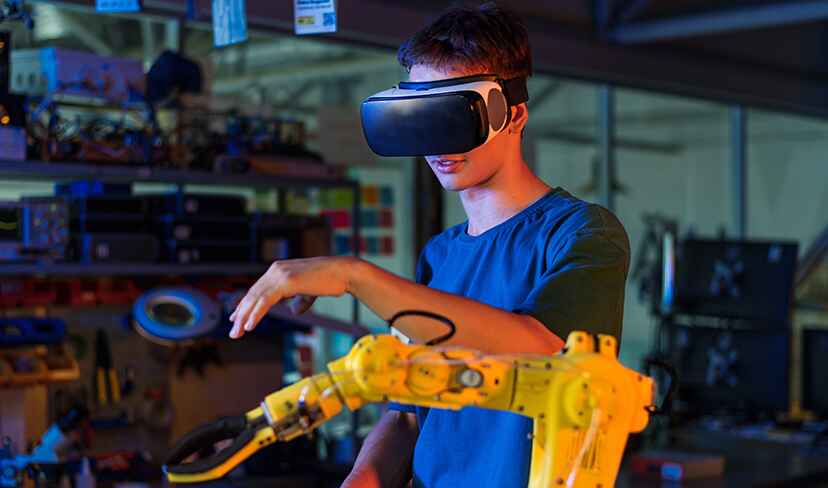Our Clients
Pressing Issues Impacting Manufacturing
Training factory workers on complex machinery presents significant challenges. The process can be risky, exposing staff to hazardous conditions, and is often expensive due to the need for physical equipment and potential disruptions to ongoing workflows. Workers may struggle to retain critical skills, and mistakes during hands-on training can lead to costly errors or compromised productivity.
Additionally, using traditional methods to identify design inefficiencies early in the manufacturing process is costly and time-consuming. Teams often face difficulties simulating workflows, spotting bottlenecks, and coordinating effectively across departments. These challenges can result in increased prototyping expenses, miscommunication, and delays in moving from design concepts to real-world implementation on the factory floor.

Our Solutions
Transform Training Effectiveness
Juego neXR’s immersive workforce training lets manufacturing employees step into realistic virtual environments where they can safely practice using machinery and work through different workflows. With these deep learning experience systems, teams can build confidence and learn how to handle unexpected situations, all without any real-world risk.
Optimize Operational Efficiency
Our spatial insight platform brings workflows to life using digital twins, letting teams visualize operations, spot inefficiencies, and fine-tune layouts before making changes on the factory floor. By catching bottlenecks early and moving away from trial-and-error, manufacturers can keep things running smoothly and get the most out of their resources.
Accelerate Product Development
Our adaptive immersive experience framework lets manufacturers build and experiment with virtual prototypes of products and tools. By testing and refining designs in a virtual space, teams can speed up development, catch design issues early, and avoid expensive changes down the line.
Workplace Safety & Preparedness
We put safety first by using an XR-powered procedural simulation engine. In a safe, controlled setting, workers experience realistic hazard scenarios and get hands-on practice with emergency responses and safety procedures, helping lower workplace accident risk. This approach enhances retention and builds confidence.
Empower Decisions with Data-Driven Insights
Cognitive immersion learning platforms come with built-in analytics that help track how workers perform, measure efficiency, and uncover useful insights. With experiential learning solutions, manufacturers can easily spot where skill gaps exist and focus on helping employees improve in those areas.
Revolutionize Quality Control & Assurance
High-fidelity spatial visualization systems offer handy analytics tools that let you see how workers are doing, measure efficiency, and gather valuable insights. With immersive skills training, manufacturers can quickly identify skill gaps and zero in on the areas where employees need the most support.
Impact of Custom Immersion in Manufacturing
Enhanced Training and Skill Development
Real-time interactive simulation brings factory training and maintenance to life, letting workers get hands-on with machinery and emergency scenarios in a risk-free setting. By allowing safe practice of dangerous tasks, immersive workforce training helps lower accident rates on the shop floor.
Improved Product Development and Prototyping
Manufacturers can use virtual prototypes to test, tweak, and visualize their designs before anything is built, helping catch mistakes early and save on costs. Advanced 3D visualization also makes it easier for teams to collaborate from anywhere, letting engineers share insights and make smarter choices quickly.
Increased Operational Efficiency and Safety
Spatial simulation training lets manufacturers test factory layouts and workflows before real-world changes. Using next-gen frameworks, teams identify process issues early and design safer training. Experiential learning helps employees respond to hazards, follow regulations, and improve productivity.
Frequently Asked Questions
Cognitive immersion learning platforms enable the development of a diverse array of immersive training modules for manufacturing environments, allowing workers to gain practical experience in a safe, controlled setting. These modules can cover:
- Machine operation and control
- Preventive maintenance and repair procedures
- Safety drills and emergency response (e.g., fire, chemical spills)
- Assembly line workflows and ergonomics
- Quality control and inspection processes
- Standard Operating Procedures (SOPs)
- Energy isolation and lockout/tagout (LOTO) training
These modules reduce downtime, enhance retention, and allow workers to practice in a safe, risk-free environment.
Modern adaptive immersive experience frameworks are fully capable of integrating with leading CAD and PLM systems such as SolidWorks, Siemens NX, Autodesk, and PTC Windchill. This integration allows manufacturers to easily import 3D models, equipment designs, and assembly data directly into immersive virtual environments for training, virtual prototyping, and collaborative design reviews. By bridging the gap between engineering and training, this approach streamlines workflows, ensures data consistency, and enhances collaboration across teams, enabling real-time visualization, rapid iteration, and efficient updates as designs or processes evolve.
Real-time interactive simulation environments can match the behavior of real-world machinery using advanced physics-based simulations and real-time animation. This includes accurately modeling motor operations, hydraulic and pneumatic movements, system responses, and sensor-driven input and output, allowing trainees to interact with machinery as they would on the actual factory floor. These simulations are further enhanced by integrating digital twins or real-time IoT data, providing an even higher level of accuracy and realism that reflects the true performance and conditions of manufacturing equipment. This approach not only supports hands-on learning but also allows for safe practice and troubleshooting without risking equipment or production downtime.
Absolutely. Multi-user collaboration is a core capability of enterprise XR-powered procedural simulation engines, enabling participants from multiple locations to join the same virtual session in real time. Teams can conduct joint training exercises, troubleshoot equipment, review and optimize factory layouts or planned upgrades, and participate in team-based emergency response drills, all within an immersive environment. This real-time collaboration not only reduces the need for travel but also enhances cross-functional communication and teamwork across geographically dispersed teams.
Custom immersion engine content can be modularly designed for easy updates. When processes, equipment, or safety protocols change, developers can update the relevant 3D models, logic flows, or training modules without rebuilding the entire experience. Additionally, content management systems (CMS) or cloud-based platforms can streamline the deployment of updated spatial insight platform content across locations or teams.
Our Offices

India
Bangalore
GR Grand Plaza, 2nd Floor, JP Nagar, 6th Phase, Bangalore – 560 078

KSA
Jeddah
St Idris Square, 4036 Helmi Koutbi, Al Zahra, Jeddah 23425, Saudi Arabia
Follow Us On:
© 2026 Juego neXR. All Rights Reserved.















